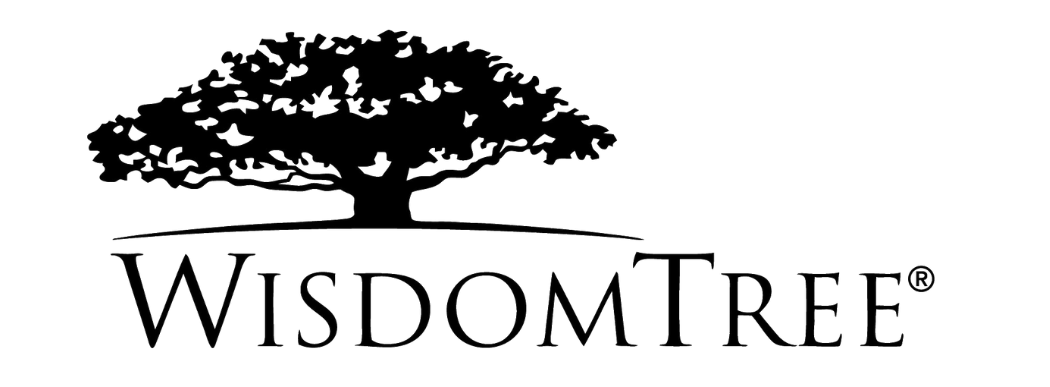Last month, WisdomTree launched an emerging markets equity ETF, the WisdomTree Emerging Markets ex-State-Owned Enterprises ESG Screened UCITS ETF (XSOE), that excludes state-owned enterprises (SOEs), companies that are notorious for being impacted by government influence.
The ETF is a mirror strategy of the US-listed WisdomTree Emerging Markets ex-State-Owned Enterprises ETF (XSOE) which has gathered $4.8bn assets since launch in 2014.
As a result, ETF Stream asked eight members of its product panel to analyse and provide a short comment on the launch. Their views can be read here:
Raymond Backreedy, CIO, Sparrows Capital
WisdomTree looks to differentiate itself from larger ETF issuers by offering distinct niche products and XSOE certainly falls into that category. The combination of SOE and ESG screens in emerging markets does have some intuitive appeal although the usual concerns around the specifics of ESG methodology apply. The SOE screen has proven popular in the US but it does not include an ESG screen so it would be right to label this product as experimental.
Much of the SOE concern relates to China and historically, the sector has indeed been penalised by political intervention. But there are signs that the tide may be changing with the government now leaning heavily on private sector giants such as Tencent, Alibaba and Didi.
The commercial freedom enjoyed by non-SOEs in China may prove less easy to monetise in future. However, XSOE does attempt to address issues for investors presented in emerging markets, and in particular, China.
Verdict: No Buy
Irene Bauer, CIO, Algo-Chain
XSOE is a very innovative product that shows we are nowhere near saturated in terms of passive index tracking. SOEs can see too much input from local government and therefore, it makes sense. Of course, one first thinks of China and its many state-owned enterprises when analysing XSOE.
In fact, when comparing the country allocations of XSOE to a market cap-weighted EM ETF, countries such as China and Brazil have their weights reduced by about one-tenth. In terms of sector allocations, it is a similar picture. Sectors such as technology, communication services and health care have a higher weighting.
Will this protect you from further crackdowns on tech companies in China? The answer is probably no. The ETF has an additional negative screening on ESG which seems a prerequisite in Europe. I would love to see the sequel to this with a fully ESG compliant ETF.
Verdict: Buy
Iain Barnes, head of portfolio management, Netwealth
This is an interesting idea from WisdomTree. Concerns over generating shareholder value have been constant in emerging markets for a long time, and as such, investors have often applied a level of scepticism over earnings prospects. Excluding SOEs is intended to reduce this impact which you imagine should be positive for returns in most scenarios.
However, as we have seen this year, authorities in China and elsewhere are willing and able to intervene in the fortunes of companies far beyond SOEs so a higher risk premium could still be applied to holdings in XSOE.
We look forward to seeing the liquidity available in the new ETF and how that translates to the total cost of ownership alongside the TER which sits above ETFs following simpler market-cap indices.
Verdict: Wait
Matt Brennan, head of investment management, AJ Bell
Investing passively in emerging market equities has often received criticism from many investors who argue the inefficiencies in areas such as company governance provide a better landscape for active managers. XSOE provides a good halfway house for investors who are unsure of using a rules-based approach in this area.
As the ETF tilts away from the old-world economy – financials, materials and utilities – towards growing sectors such as consumer services and technology, it is likely to carry additional risk but at the same time gives higher exposure to growth stocks. With only 70% crossover with the MSCI EM ETF, it can add extra diversification to a portfolio.
Verdict: Buy
Sekar Indran, senior portfolio manager, Titan Asset Management
XSOE offers greater exposure vis a vis traditional emerging market indices to ‘new economy’ sectors that are more geared to the digital revolution among other megatrends that will continue to drive economic growth. Non-SOEs, however, are not insulated from government intervention as we have been repeatedly reminded of this year.
Other EM ETFs with purely non-SOE holdings such as EMQQ and KWEB have suffered large drawdowns on the back of state regulatory pressures. While the long-term outlook is positive and valuations appear attractive, a number of short-medium term headwinds may persist.
Verdict: No Buy
Andrew Limberis, investment manager, Omba Advisory & Investments
There is a definite appeal to being able to exclude SOEs from an emerging markets basket. This latest launch nicely complements the ever-growing choice for investors looking for broad emerging markets exposure.
While almost every broad emerging market ETF launch in the last two years has an ESG slant, the light-touch ESG screen on XSIE is not much more than that and the focus should stay on the SOE exclusion.
An emerging market allocation in a portfolio is however not an easy allocation to fill given the dominance of a few large countries/companies within EM capital markets along with disparate fortunes of smaller emerging market economies.
Verdict: No Buy
Wayne Nutland, head of managed index solutions, Premia Miton
As China’s weighting in emerging market equity indices has grown, it is always useful to see new ways of obtaining differentiated exposure to emerging markets via rules-based strategies with reasonable – if not cheap – TERs.
Over the long term, the exclusion of SOEs has boosted performance relative to the MSCI Emerging Markets index which seems likely to reflect a combination of governance issues and fundamental exposures, with SOEs tending to be more focused on ‘old economy’ not ‘new economy’ sectors.
Recent events have made clear that SOEs are more aligned with government policy and are less likely to be hit by surprise regulatory actions. This shows that not being government-controlled does not always lead to more shareholder-friendly outcomes.
However, it seems likely that long-term growth prospects remain superior for ‘new economy’ stocks. Recent market movements may have provided a relatively attractive entry point for such exposures and XSOE may be appealing for those wanting to take advantage of recent price action via a tilt towards ‘new economy’ stocks within a diversified strategy.
Verdict: Wait
Peter Sleep, senior investment manager, 7IM
Intuitively this sounds like a neat idea. Get rid of the fusty old SOEs and bring in growthier private companies. However, analysis shows there was not a great deal of difference between the WisdomTree index and the MSCI index. The tracking error between the two is only 1.3% and I struggled to see the growth bias I expected, especially as WisdomTree has removed 25% of the names and 20% of the market cap from their emerging market index.
The definition of an SOE is loose. I expected companies where the state owned more than 50% of the company. However, WisdomTree used a threshold of 20% ownership to broaden the net, presumably to distinguish it more from the main EM indices. However, I am not sure if the tracking error justifies the 80% premia over the market-leading vanilla EM ETF.
I read that holding SOEs increases the risk of holding emerging markets but is this really the case? The recent regulatory crackdown in China was on private companies, not SOEs, suggesting the case is not clear cut.
Verdict: No Buy
This article first appeared in ETF Insider, ETF Stream's new monthly ETF magazine for professional investors in Europe. To access the full issue,click here.



